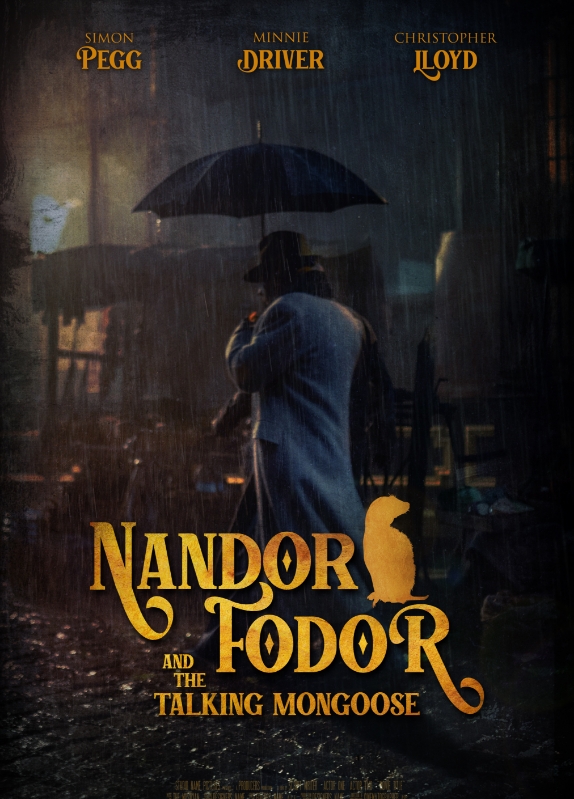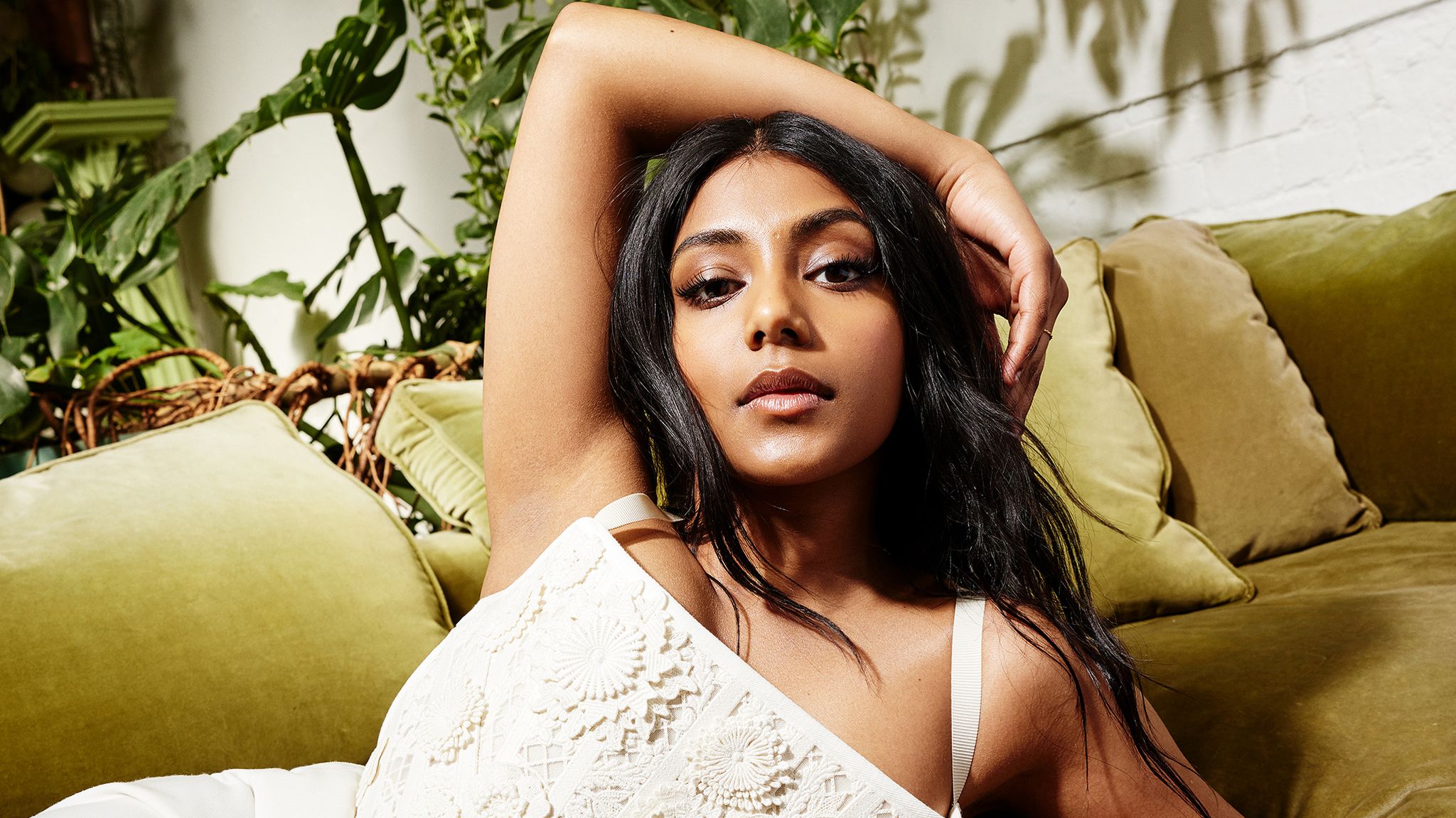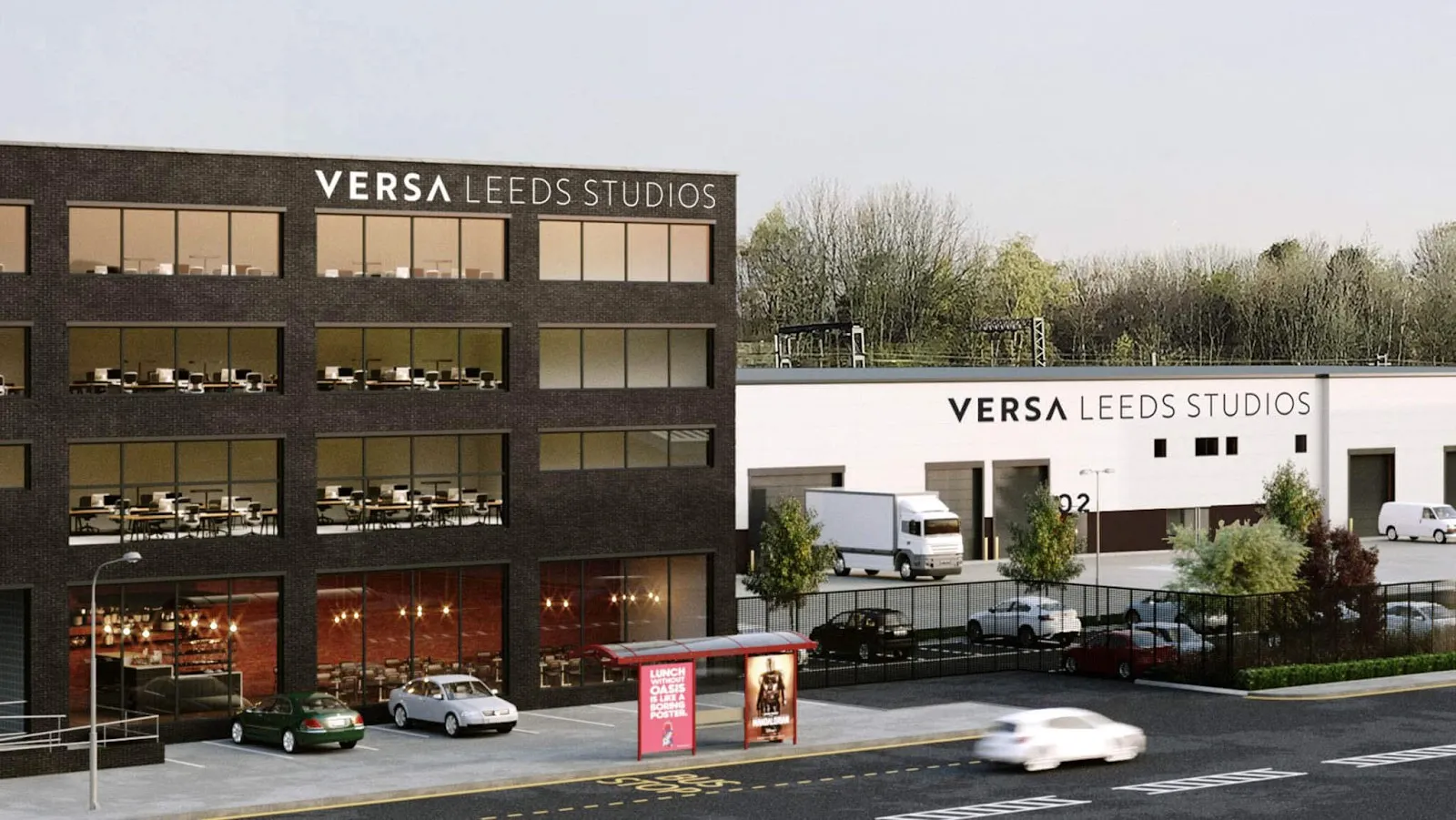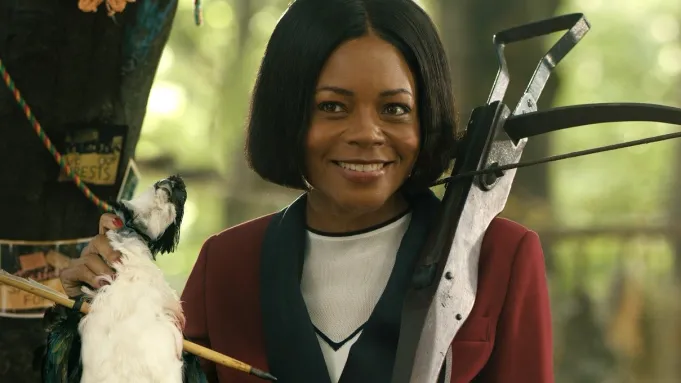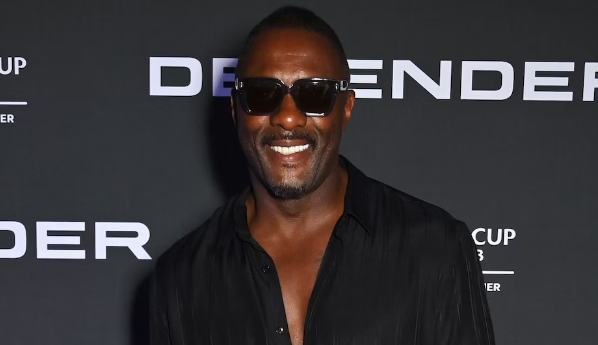Last year, Charithra Chandran became the talk of the ton as one of the leads in Bridgerton. How does your life change when you’re cast in one of the biggest shows of the past decade? And what comes next? We found out…
How to Date Billy Walsh follows teenagers Archie and Amelia (Croft and Chandran, respectively), who have been friends for years. The thing is, Archie is secretly in love with Amelia and has been for years.
INTERVIEW: SHANNON MAHANTY PHOTOS: ZOE MCCONNELL FASHION: SASKIA QUIRKE
‘My life just feels so… normal?’ says Chandran, over a builder’s tea in one of her favourite central London cafes, her hair slicked back in a silk headscarf. ‘That is the number one thing that has left me feeling sane. I worry that if my personal life was fully in this world, these crazy experiences would start to feel normal. I need to be surrounded by people not involved in the craziness.’
Most of her friends – like the ones at the dinner party – are from school and university, and the industry friendships she has tend to be with older women, including her Bridgerton cast mates Golda Rosheuvel (Queen Charlotte) and Shelley Conn, who played her mother in the series. ‘We hang out all the time. We go see shows; we grab tea or dinner. Golda’s so cool, sometimes I wonder why she wants to hang out with me. Shelley is literally like my older sister; I’m super close with her family. They both give me advice constantly about how to hold yourself in the industry. They provide perspective as well; they’ve been in it for so long, and they’re both women of colour; they remind me how far we’ve come and how far we have to go. Everything that I go through, they’ve been through it tenfold. I really rely on their counsel.’
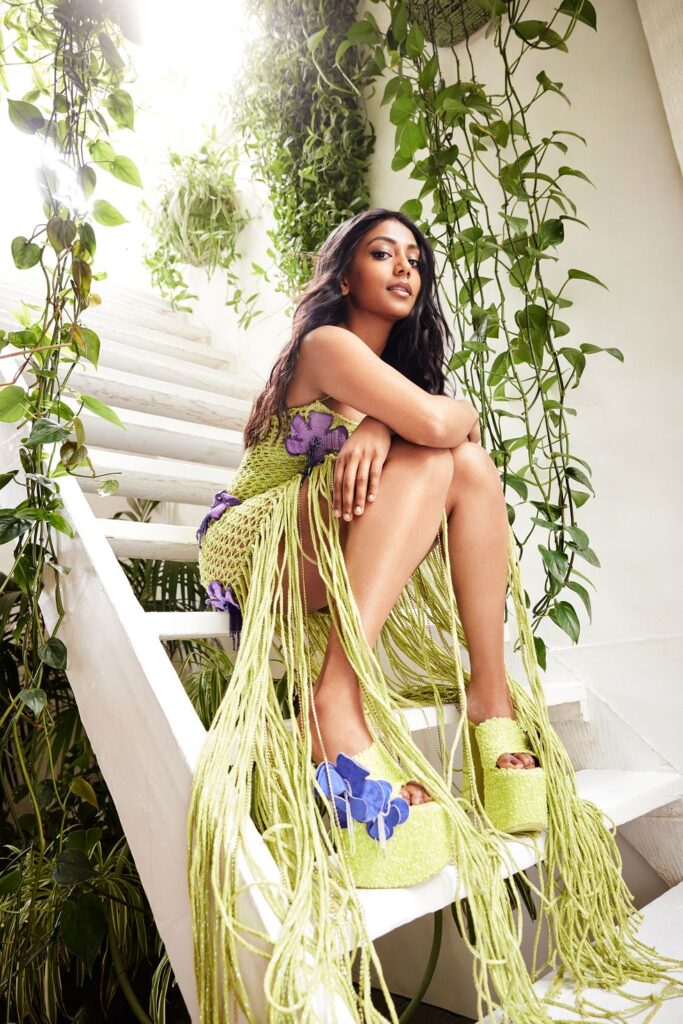
The road to Bridgerton
‘I get so much energy and enrichment meeting someone who tells me what seeing Simone and me on Bridgerton means to them’
Shortly after, Chandran landed a role in Amazon Prime’s Alex Rider series, and then came her even bigger break: Bridgerton. The process was turbulent. The world had gone into lockdown and after a handful of virtual auditions for Ashley’s role (Kate), Chandran was told she looked too young for the part. Months later, out of the blue, she was approached again, and by that point, season one was already out and the show was a breakout hit that became the most-viewed English-language series onNetflix at the time. ‘While they continued looking for Kate, they had me on the back burner. I’d got a part in another show, so I was like, you know, okay, I love the sound of Bridgerton, butI have [other] work so, whatever. And then season one came out and I was like, “Oh, man! It’s such a good show. I would have loved to get that!”’ This time, the team wanted her to audition for the role of Kate’s younger sister, Edwina Sharma. ‘I desperately wanted to be in the show, but I didn’t want to do it solely for that – which is such an ego trip! I only had one credit at the time. But I was fully being like, “Okay, tell me more about the role…’ So I read for it, and then I didn’t hear about anything for months. I was like, “Okay, well, clearly it’s over!”’
Then, one afternoon, while helping out in her mum’s allotment, she received a call asking her to audition with Bailey and Ashley. ‘I didn’t even realise I was still in the running. But the chemistry read was so special. I remember they looked so beautiful on Zoom. The lighting was amazing, and I was in my dingy dining room in the dark. I thought, “Okay, I need to step up my game.”’ Clearly she was already bringing her A-game because she landed the part.
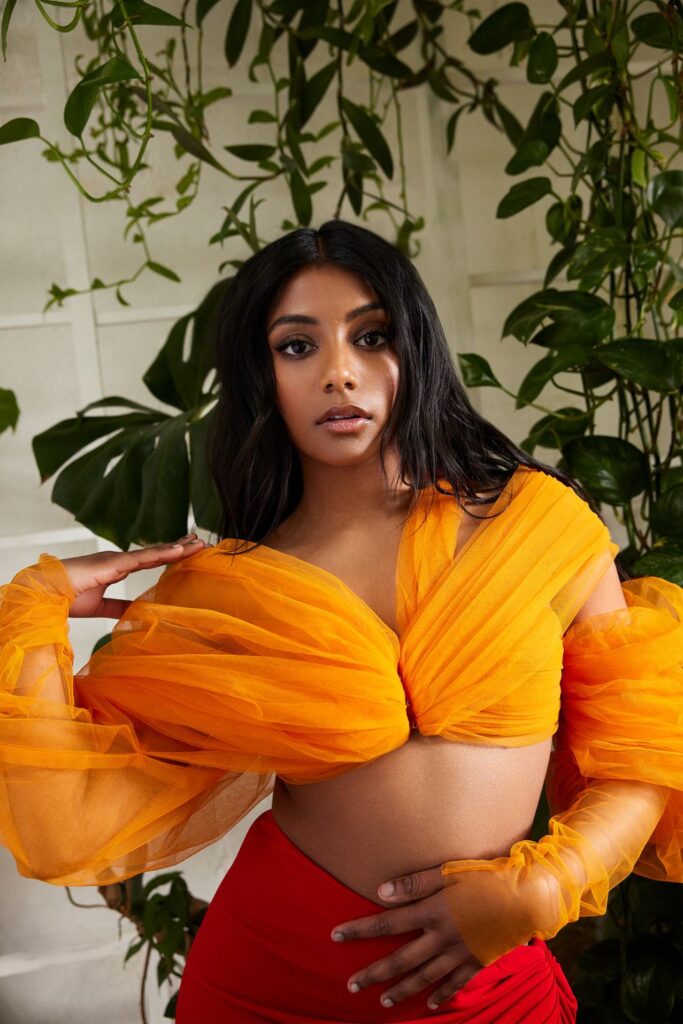
Surviving the spotlight
Bridgerton has a habit of launching the stellar careers of its leads. Almost overnight, season one’s Phoebe Dynevor and Regé-Jean Page went from emerging actors to household names. ‘So many of the cast members who’d been through it were like, Charithra, get a therapist because this is crazy,’ she remembers. She took their advice, and while therapy has been invaluable, nothing could truly prepare her for such a life-altering experience. She cites events in particular as ‘anxiety-inducing’, explaining, ‘There’s an impostor syndrome there. I leave and I want to cry every time!’ It sounds intense, and the internet’s opinions only exacerbated it. ‘I think when anyone is first exposed to this [fame] on the level that I was, they read the comments, they google themselves. And when you read the really aggressive ones – I know this sounds dramatic – but you feel really vulnerable. I’m a normal person – I’m taking the bus, I’m taking the Tube. You’re thinking all it takes is one person being slightly too deranged and trying to hunt you down… It took me like a solid four months to [get] through that.’
When it comes to social media generally, and whether she feels any pressure with what she posts and the persona she presents, Chandran is typically low-key. ‘I’m not famous enough for people to care about me enough to feel that now! I’m not thinking to myself at any point, “I wonder how the public will receive it.” Maybe I should! But even if – fingers crossed – I continue to do really cool things, and I do get more famous, I’m a very open person. I’m not trying to hide anything. I’m very active on social media and I share loads of parts of my life. But that’s what I’d be doing anyway, even if I wasn’t doing this. I don’t do things differently because I have a platform.’
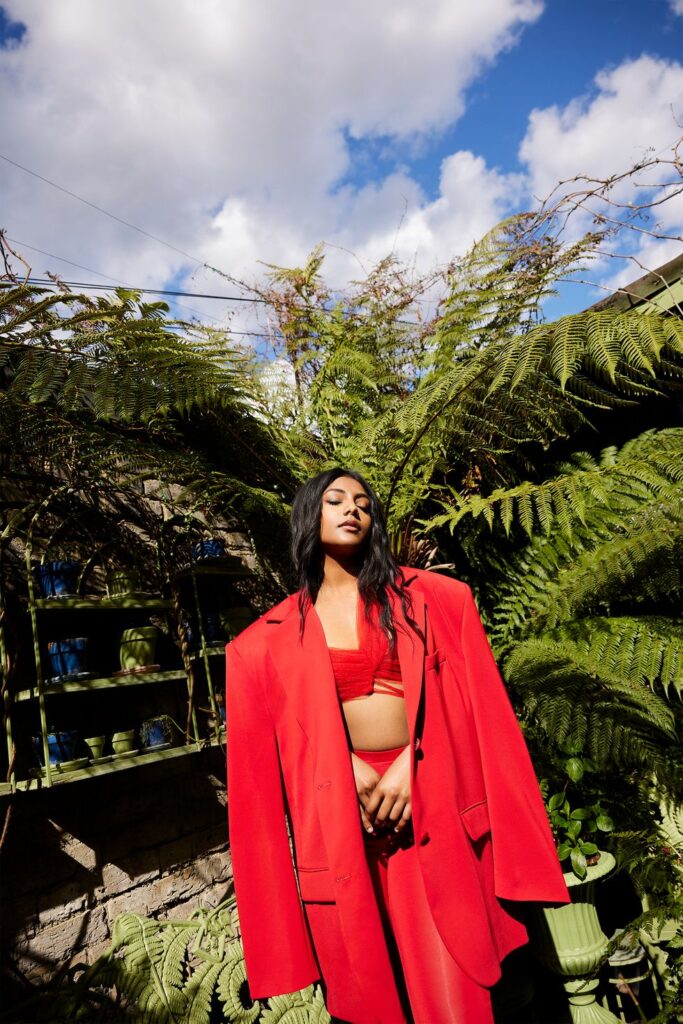
One thing she is clear on: she doesn’t read negative comments any more and focuses her attention on what a powerful impact the series has had, particularly for young women of colour. ‘I get so much energy and enrichment when I meet someone who’s watched it and tells me how much seeing Simone and me on the show means to them.’ She adds, ‘She is so beautiful. We both went through a baptism of fire together, so we really bonded for life over this very seismic experience that we had. We’re connected by something so big.’
Chandran is clearly proud of the show, however not all responses to Bridgerton have been positive. While the Shonda Rhimes Regency-era romance has largely been praised for the diversity of its stars, some critics have questioned the casting, suggesting it’s tokenistic and that the characters of colour aren’t afforded sufficient context or cultural recognition and could just as easily have been played by a white actor. ‘It’s not a perfect show,’ says Chandran. ‘No one’s out here saying this is a perfect representation of anything. If we were to do it again, I’m sure we’d make certain different decisions, but it’s a damn good try. And it’s a really bold try. Let’s enjoy the fact that we have this and continue striving for more.’
Chandran says some of the commentary that bothered her the most were ‘the comments that said I only got to where I am because I’m Eurocentric or I’m white-passing. That really bugged me because all my life I’ve had to face prejudice for not being those things. I have a quintessentially Tamil face, not even Indian, people can place me as a Tamil. You open books, you go to a temple, you see the pictures and paintings; they look like this. So it’s like, bro, I didn’t go through prejudice and discrimination for you to now belittle my identity. When the show was coming out, that’s all I could focus on.’
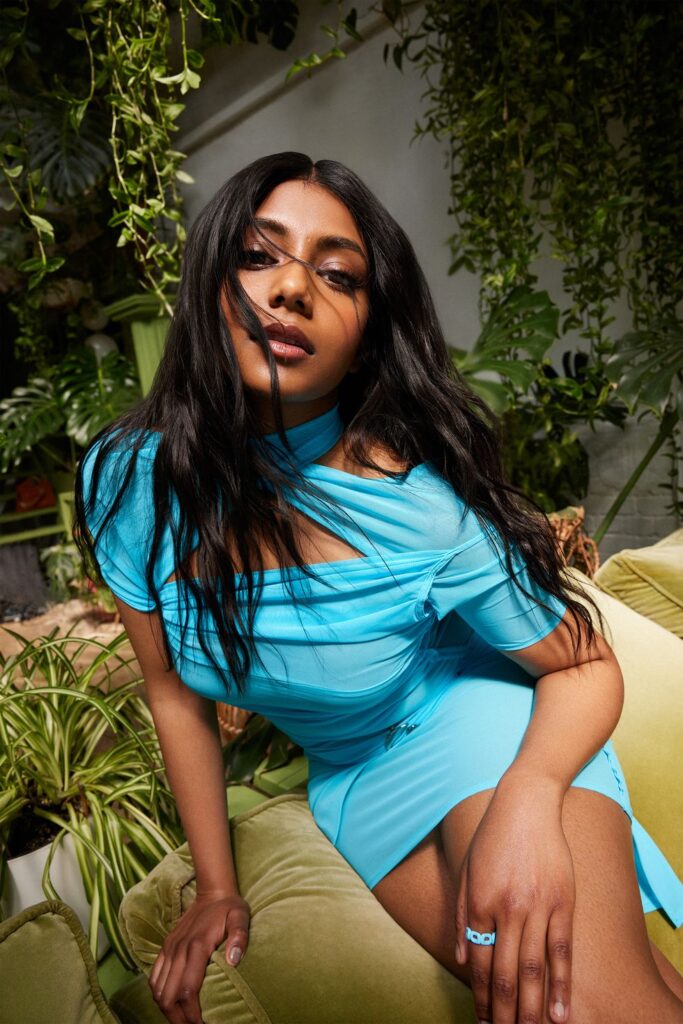
From Regency to romance
As she gears up for the release of her next project, How To Date Billy Walsh, this time around, her feeling is one of excitement. She plays Amelia, a precocious teenager who, much like her Bridgerton character, finds herself caught up in an unlikely love triangle with her best friend Archie (played by Heartstopper’s Sebastian Croft) and an elusive new student (Cobra Kai’s Tanner Buchanan). The film brims with all the fun, campness and nostalgia of a classic romcom. ‘We wanted to make something that was really timeless,’ says Chandran. ‘My cousins who are 12 and 13 are still watching Clueless, The Breakfast Club, Ferris Bueller’s Day Off. We wanted to do something fun and heart-warming that harked back to the 90s.’
While classic teen romances are praised for their charm, they’re less celebrated for their diversity. As a woman of colour, did it feel like a big deal to be at the helm of a high school romcom? ‘I think it’s so interesting because what I really loved and appreciated was how not a big deal it felt, and I think that’s a real testament to all the people that have come before me, all the directors, producers, actors who have paved the way. I love representing my culture, and I love playing characters who are culturally specific to me,’ she says, ‘but on the flipside, I also enjoy playing a normal person where the story isn’t just about her being Indian. That is what I want for my career as well. I want to do things about race that start important conversations, and things about love and friendship. I don’t want to be a one-trick pony.’ When choosing roles, she says her approach is simply to find characters who feel truthful. ‘The times I’ve said no are if it perpetuates bad or lazy stereotypes, if it’s a character I’ve already seen before.’
‘I want to do projects about race that start important conversations, and projects about love and friendship. I don’t want to be a one-trick pony’
As a romantic lead, her performance is effortless. Amelia is a plucky teenager who reels through the full spectrum of emotions when she develops a crush on the titular character, faces off against bullies and navigates some complicated feelings towards her best friend. Her portrayal of a girl caught in the full throes of an all-consuming crush is vibrant and hilarious, but she also imbues Amelia with a real sense of vulnerability.
Chandran shares some of Amelia’s confidence and her thirst for new experiences, but her own memories of dating as a teenager were quite different. rowing up in Oxford, she went to an all-girls school. Most weekends involved house parties with boys from the neighbouring schools, where she would be the only one to get, ‘no attention from the guys,’ she remembers. ‘I thought, “Maybe they’re just not attracted to brown girls.” I’m curvy; Indian women tend to have curves and fat in different places. All my friends were white and skinny. It was confusing, but I never took it personally. I used to wonder, is it because they see a brown girl and think, “Oh, she probably can’t drink, she’s probably really prudish” – what assumptions were they making just from the colour of my skin?’
While she was at university, one of the boys who had been on the same teen house-party circuit messaged her on Facebook. ‘This is a guy I’d seen every weekend for almost two years. He said I was cute and asked me how we knew each other. What’s mad is that I didn’t go to uni and have some glow-up. I looked exactly the same at 19 as I had at 15.’ She believes his sudden interest reflected a broader cultural shift towards diversity. ‘By that time, there were more Black and brown women in magazines and in lead roles on TV. I realised, “Oh, I’m trendy. So now you see there’s an attractiveness there. Because I objectively know I don’t look different.” That kind of shit happened quite a few times.’
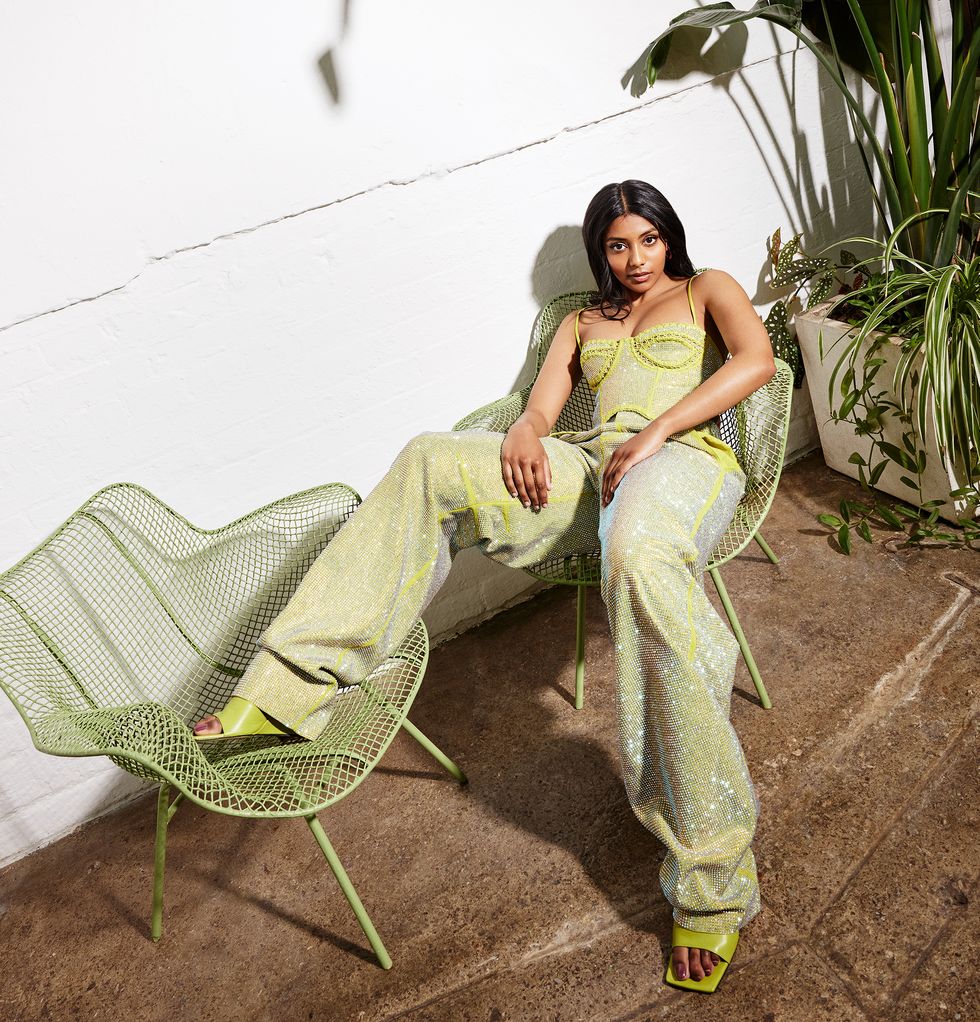
Needless to say, Chandan ghosted the message. ‘I’m not a trend,’ she says with a playful eye-roll. In life after Bridgerton, she admits dating can be difficult to navigate. She doesn’t use apps because ‘even before the show, people would see me on Instagram or google me. Which we all do, it’s fine… but it started to get weird. So it is harder to meet people, but I don’t think I’m famous or successful enough to ever have to worry that someone’s dating me for clout’. Plus, she knows what’s important in a potential partner. ‘If I think about what kind of person I want to date, the number one thing I’ll say is that they need to be a feminist. I’m a feminist, I’m an advocate for women. I went to a girls school, my family is a matriarchy.’
Dating aside, the fact that Chandran’s life hasn’t changed all that much is a testament to her ability to keep both feet on the ground. There’s also perhaps the knowledge that, should she ever find herself changed by fame, her best friends will absolutely be there to bring her back to reality at the next dinner party. ‘They’re the most important people to me’ she says. ‘I love to be surrounded by women. I love the men in my life, but I just prefer women. Women made me feel safe, they make me feel heard.’

